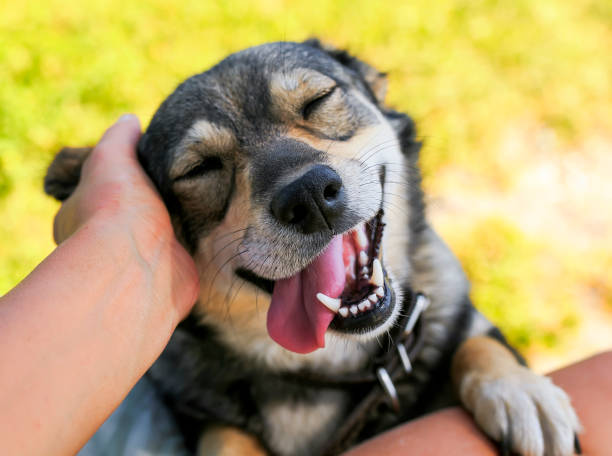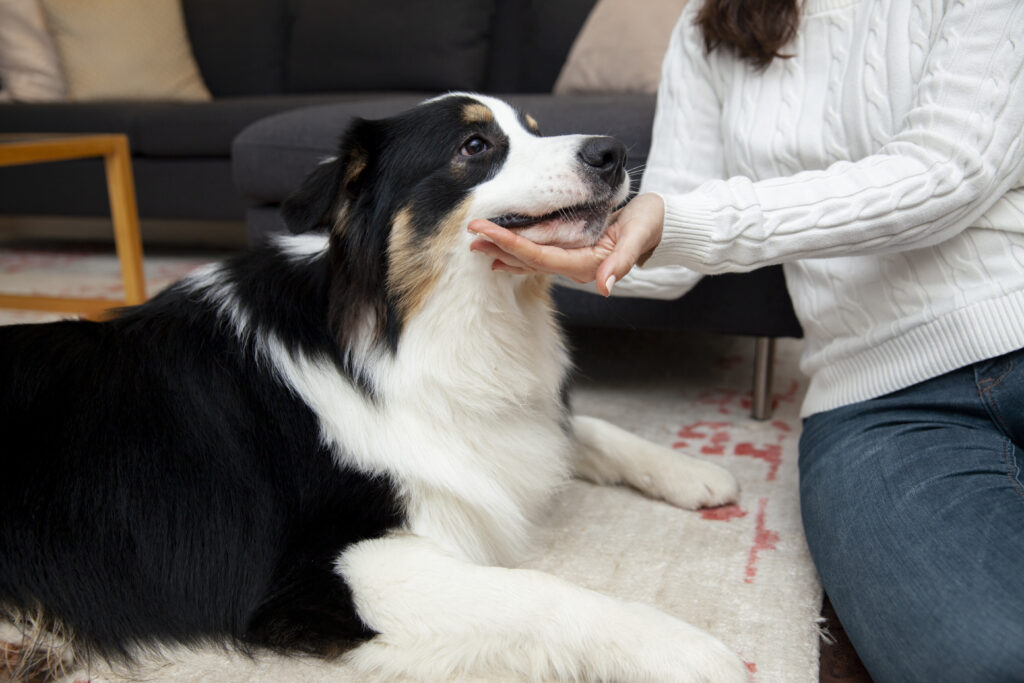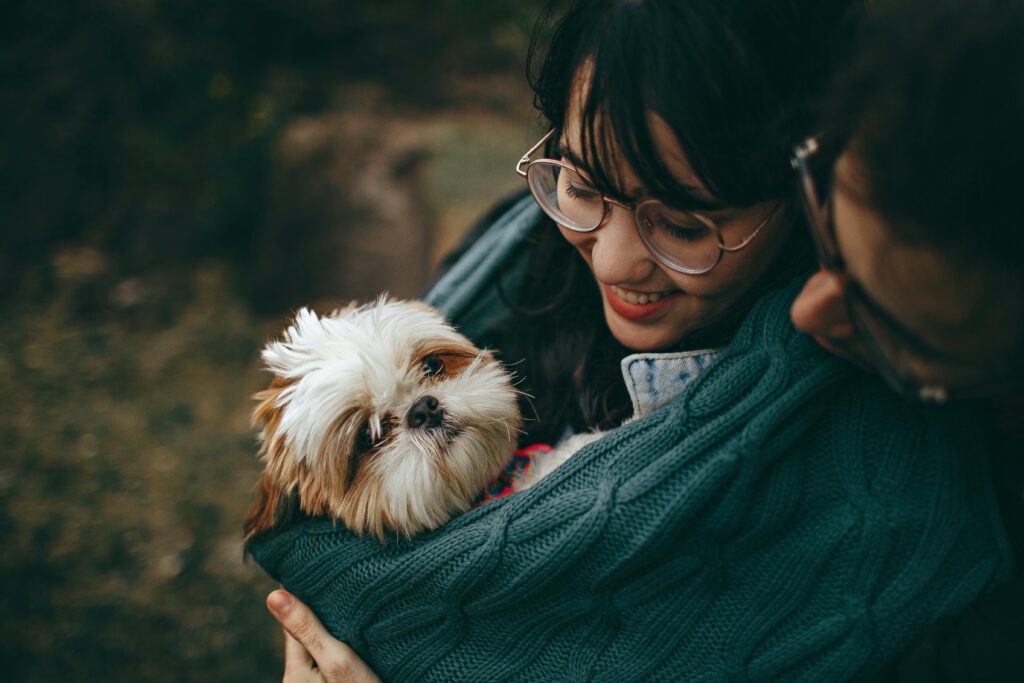
Woof Woof! Welcome to the Wonderful World of Dog Ownership!
So, you’ve decided to bring a furry friend into your life? Congratulations! Dogs can be incredible companions, offering unconditional love, endless entertainment, and a loyal friend by your side. But before you get swept away by adorable puppy pictures or playful adult canines at the shelter, there are some things every first-time dog owner should consider. This guide will walk you through what to know as a first time dog owner: the joys, challenges, and responsibilities of dog ownership, helping you prepare for a happy and fulfilling life with your new canine buddy!
Also Read: 5 Reasons Why Do Dogs Roll on Their Backs? A Comprehensive Guide
The Joyful Rewards of Dog Ownership
Sharing your life with a dog brings countless benefits:
- Unconditional Love and Companionship: Dogs offer unwavering loyalty and affection. They’re always happy to see you, eager to cuddle, and provide a sense of companionship that can be truly heartwarming.
- Increased Activity and Exercise: Dogs need regular walks and playtime, which naturally encourages you to get active. This not only benefits your furry friend’s health but improves your overall well-being too!
- Reduced Stress and Anxiety: Studies show that interacting with dogs can lower stress levels, decrease anxiety, and even improve your mood. Their playful nature and unconditional love can be a welcome stress reliever after a long day.
- Socialization and New Friendships: Dogs are great conversation starters! Owning a dog can lead to more interactions with your neighbors, fellow dog owners at the park, and even new friendships.
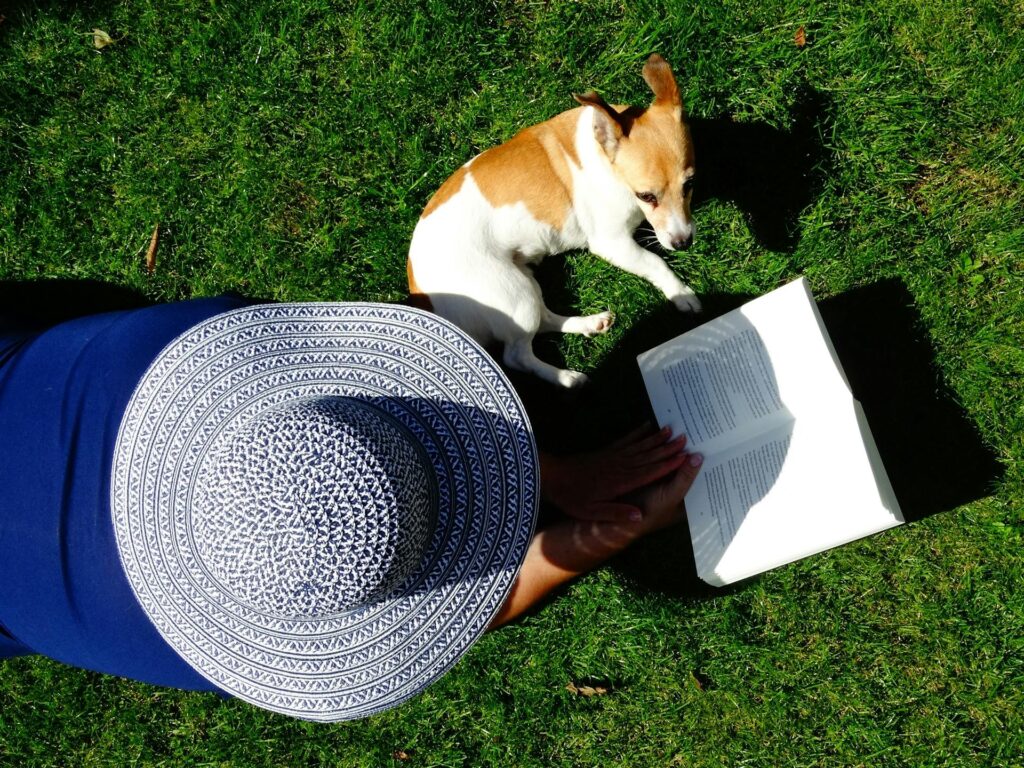

- A Sense of Purpose and Responsibility: Caring for a dog instills a sense of responsibility and routine into your life. It’s a rewarding experience to watch your pup grow and thrive under your care.
What to Know as a First Time Dog Owner?
You must understand the following things before you become a first time dog owner:
Understanding the Responsibilities of Dog Ownership
Before you welcome a dog into your home, it’s important to understand the commitment involved:
- Financial Responsibility: Owning a dog comes with expenses like food, vet care, training, grooming, and toys. Be sure you can comfortably afford these costs before bringing a dog home.
- Time Commitment: Dogs need regular walks, playtime, and training. Factor in the time required for these activities and make sure your lifestyle can accommodate them.
- Training and Behavior: Dogs need training to learn basic commands, proper behavior, and socialization skills. Be prepared to invest time and effort in teaching your dog good manners.
- Lifestyle Changes: Owning a dog might require some adjustments to your routine. You might need to skip spontaneous outings or change your travel plans to accommodate your furry companion’s needs.
- Long-Term Commitment: Dogs can live for 10-15 years or even longer. Bringing a dog into your life is a long-term commitment, so be sure you’re ready for the responsibility.
Also Read: Do Dogs Have Their Own Language? How Can I Understand my Dog’s Language?
Choosing the Right Dog for You
Not all dogs are created equal! Before you head to the shelter or browse online listings, consider your lifestyle and living situation:
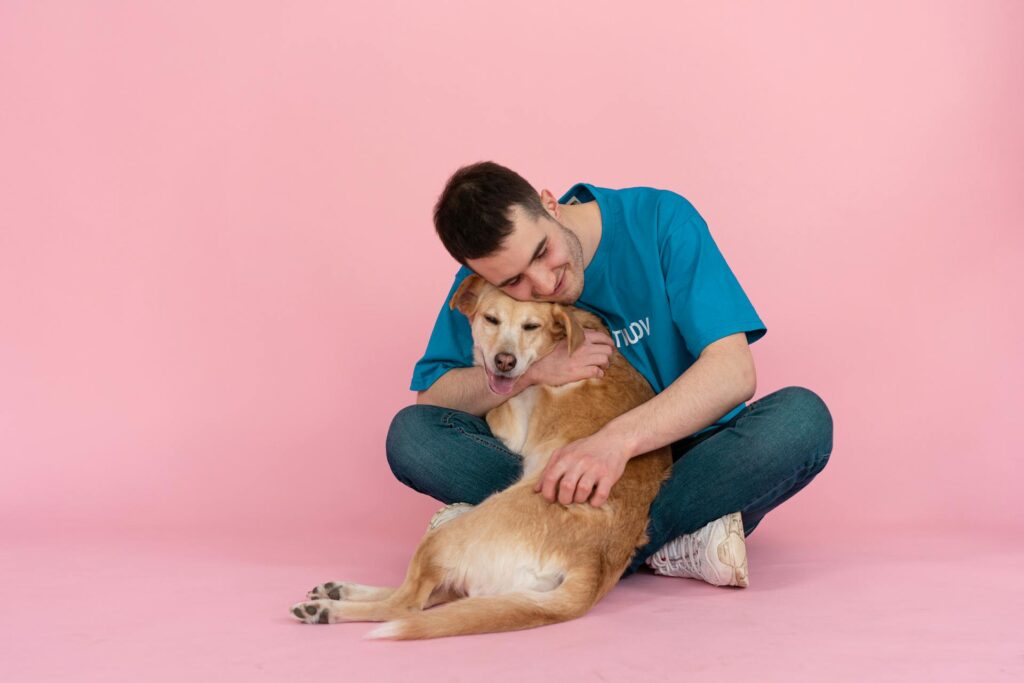

- Breed: Research different dog breeds to find one that matches your activity level, living space, and overall lifestyle. For example, a high-energy Border Collie might not be the best fit for an apartment dweller, while a mellow Cavalier King Charles Spaniel might not enjoy long hikes.
- Age: Puppies are undeniably cute, but they require a lot of training and supervision. Adult dogs might be a better choice if you prefer a more settled companion.
- Adoption vs. Breeder: Consider adopting a dog from a shelter or rescue organization. They often have a variety of breeds and ages available, and you’d be giving a loving home to a dog in need. If you’re set on a specific breed, a reputable breeder might be an option.
Preparing Your Home for Your New Dog
Once you’ve chosen your furry friend, it’s time to prep your home for their arrival:
- Dog-proof your space: Remove any potential hazards like electrical cords, toxic plants, or medications. Ensure your yard is secure with a fenced-in area if your dog will spend time outdoors.
- Stock up on supplies: Get essentials like food and water bowls, a leash and collar, a comfy bed, toys, and waste disposal bags.
- Establish a routine: Decide on a feeding schedule, walking routine, and potty breaks. Consistency is key when training your dog.
- Find a veterinarian: Locate a veterinarian near your home and schedule an initial check-up for your new dog.
Also Read: 07 Major Reasons Why is my Dog Aggressive towards Other Dogs
Essential Training Tips for New Dog Owners
Training your dog is crucial for a harmonious and enjoyable life together. Here are some basic tips:
- Start Early and Be Consistent: The sooner you begin training your dog, the easier it will be for them to learn and understand desired behaviors. Consistency is key! Use the same commands, rewards, and corrections every time.
- Positive Reinforcement Training: Positive reinforcement training methods are most effective. Reward your dog with treats, praise, or playtime when they exhibit good behavior. This motivates them to learn and repeat positive actions.
- Patience and Persistence: Training takes time and patience. Don’t get discouraged if your dog doesn’t get it right away. Be patient, persistent, and use positive reinforcement to guide them.


- Enroll in a Training Class: Consider enrolling in a puppy kindergarten or basic obedience class with a qualified dog trainer. This provides a structured learning environment and professional guidance for you and your dog.
- Socialization: Socialization is vital for a well-adjusted dog. Expose your dog to different people, places, and other animals in a positive way during their puppyhood. This helps prevent fearfulness or aggression later in life.
Addressing Common Concerns of First-Time Dog Owners
Owning a dog can be amazing, but it’s natural to have some concerns. Here are some common worries and how to address them:
- Will I have enough time for a dog? Be honest about your lifestyle. If your schedule is jam-packed, consider a lower-maintenance breed or an older dog with less energy. Dog walkers or doggy daycare can also be helpful options.
- Can I afford a dog? Budget for food, vet care, training, grooming, and other expenses. Pet insurance can also help with unexpected vet bills.
- What if I travel a lot? If you travel frequently, consider a breed that adapts well to boarding or find a reliable pet sitter. Some dog-friendly hotels and rentals can accommodate your furry companion on your adventures.
- What if my dog chews on my furniture? Provide your dog with plenty of chew toys to redirect their chewing behavior. Crate training can also help prevent destructive chewing when you’re not home.
- What if my dog doesn’t get along with other dogs? Socialization is key! Enroll your dog in puppy playgroups or obedience classes to help them interact positively with other canines.
Building a Lasting Bond with Your Dog
The bond you share with your dog is a special one. Here are some ways to nurture that connection:
- Spend quality time together: Make time for daily walks, playtime, cuddles, or training sessions. These shared activities strengthen your bond and provide mental and physical stimulation for your dog.
- Show affection and praise: Dogs thrive on love and positive reinforcement. Pet them, praise them for good behavior, and shower them with affection to build a trusting and loving relationship.
- Be patient and understanding: Dogs are individuals with their own personalities and quirks. Be patient with their learning process and celebrate their successes along the way.
- Involve your dog in your life: Take your dog on hikes, to dog-friendly parks, or simply include them in your daily activities whenever possible. They’ll appreciate the extra time spent with you.
Final Thoughts: A Furever Friend Awaits!
Dog ownership is a rewarding and enriching experience. By understanding the responsibilities, choosing the right dog, and investing time and effort in training and care, you can build a lifelong bond with your furry friend. So, are you ready to welcome a wagging tail and unconditional love into your life? With preparation, dedication, and a big heart, you can embark on a wonderful journey of canine companionship!
Remember:
- Owning a dog is a long-term commitment. Be sure you’re ready for the responsibility before bringing a dog home.
- Choose a dog that matches your lifestyle and living situation.
- Invest time and effort in training your dog for a harmonious life together.
- Shower your dog with love, affection, and quality time to build a strong bond.
Happy Dog Ownership!
What to Know as a First-Time Dog Owner? – FAQs
Congratulations on deciding to bring a dog into your life! It’s an exciting adventure, but also a big responsibility. This FAQ section addresses some common questions first-time dog owners might have:
Q. What are the biggest differences between owning a puppy and an adult dog?
Puppies are undeniably adorable, but they require a lot more work and supervision. Here’s a quick breakdown:
- Training: Puppies need consistent potty training, basic obedience training, and socialization. Expect more accidents and chewed belongings in the early stages.
- Energy Level: Puppies have boundless energy and require frequent walks, playtime, and mental stimulation to prevent boredom and destructive behaviors.
- Time Commitment: Be prepared to devote significant time to training, playtime, and supervision with a puppy. Adult dogs might be content with fewer walks and playtime, but still require attention and exercise.
Q. How much exercise does my dog need?
Exercise needs vary depending on breed, age, and overall health. Generally, high-energy breeds like Border Collies or Labrador Retrievers need vigorous exercise daily, while smaller breeds or senior dogs might require shorter walks or playtime.
- Consult Your Veterinarian: Discuss your dog’s specific needs with your veterinarian. They can recommend an appropriate exercise routine based on your dog’s breed, age, and any health considerations.
- Start Slow and Gradually Increase: Puppies’ bones and joints are still developing. Start with short walks and playtime sessions and gradually increase the duration and intensity as they grow older.
Q. How often should I feed my dog?
Feeding schedules depend on your dog’s age, breed, and activity level. Generally, puppies need smaller meals more frequently (3-4 times a day) to support their growth and development. Adult dogs can typically do well with 2 meals a day.
- Follow Feeding Guidelines: High-quality dog food will have recommended feeding amounts based on your dog’s weight and activity level. Use these guidelines as a starting point and adjust portions if needed to maintain a healthy weight.
- Monitor Weight and Body Condition: Regularly weigh your dog and monitor their body condition. If they seem too thin or overweight, adjust their food intake accordingly or consult your veterinarian.
Q. What kind of training should I focus on with my new dog?
Focus on basic obedience commands like “sit,” “stay,” “come,” “heel,” and “leave it.” These commands will help you control your dog in various situations and ensure a safer and more enjoyable life together.
- Positive Reinforcement: Use positive reinforcement training methods with treats, praise, or playtime to reward good behavior. This motivates your dog to learn and repeat desired actions.
- Socialization: Socialization is crucial! Expose your dog to different people, places, and other animals in a positive way during their puppyhood. This helps prevent fearfulness or aggression later in life.
- Consider a Training Class: Enrolling in a puppy kindergarten or basic obedience class with a qualified dog trainer can provide valuable guidance and a structured learning environment for you and your dog.
Q. What are some signs my dog might be sick?
Several signs might indicate your dog isn’t feeling well:
- Changes in Appetite or Eating Habits: Loss of appetite or unusual eating behavior can be a red flag.
- Lethargy or Unusual Behavior: If your dog seems unusually tired, listless, or displays changes in their usual behavior, consult your veterinarian.
- Vomiting or Diarrhea: Occasional vomiting or diarrhea might not be serious, but persistent episodes warrant a vet visit.
- Fever: A dog’s normal temperature is around 101-102.5 degrees Fahrenheit. Higher temperatures indicate a potential infection.
Q. How often should I take my dog to the vet?
Puppies need more frequent vet visits for vaccinations, deworming, and check-ups. Adult dogs typically require annual check-ups, with more frequent visits depending on their age, breed, and any health concerns. Here’s a good rule of thumb:
- Puppies: Schedule vet visits every few weeks until they are fully vaccinated (around 4-6 months old).
- Adult Dogs: Annual check-ups are essential for preventive care and early detection of potential health issues. Senior dogs (over 7 years old) might benefit from twice-yearly check-ups.
- When in Doubt, Consult Your Vet: If you notice any concerning signs or changes in your dog’s health, don’t hesitate to schedule a vet visit, regardless of their age or last check-up.
Q. What kind of grooming does my dog need?
Grooming needs vary depending on breed. Long-haired dogs typically require regular brushing to prevent matting, while short-haired breeds might need less frequent brushing. Most dogs will benefit from occasional baths with a dog-friendly shampoo.
- Consult Your Breeder or Veterinarian: Ask your breeder or veterinarian for breed-specific grooming recommendations.
- Regular Brushing: Brushing your dog regularly helps remove loose fur, prevent matting, and promote a healthy coat.
- Nail Trimming: Long nails can be uncomfortable for your dog and cause them to snag on carpets or furniture. Learn how to trim your dog’s nails properly, or have a groomer do it for you.
Q. Can I travel with my dog?
Many dog-friendly travel options exist! Research hotels and rentals that allow pets. Consider car travel with a crate or secure harness for your dog’s safety. If flying, choose an airline that accepts pets and ensure you meet all their requirements for pet travel.
- Prepare Your Dog for Travel: Familiarize your dog with their travel crate or carrier beforehand. Make sure they have proper identification and updated vaccinations before traveling.
- Plan for Rest Stops: If traveling by car, plan for frequent rest stops to allow your dog to eliminate and stretch their legs.
- Dog-Friendly Destinations: Many websites and apps can help you find dog-friendly parks, restaurants, and activities at your travel destination.
Q. What are some resources that can help me as a new dog owner?
There are many resources available to help you on your journey as a first-time dog owner:
- Your Veterinarian: Your vet is your best resource for all things dog health! They can answer your questions, provide training tips, and recommend appropriate food and preventive care for your furry friend.
- Online Resources: Several websites and blogs offer valuable information on dog care, training, and behavior. Look for reputable websites from veterinarians, animal welfare organizations, or professional dog trainers.
- Dog Training Classes: Enroll in a puppy kindergarten or basic obedience class for structured training and guidance from a qualified dog trainer. This can be a great way to learn valuable skills and socialize your dog.
- Books and Magazines: Numerous books and magazines offer information on dog breeds, training, care, and behavior.
